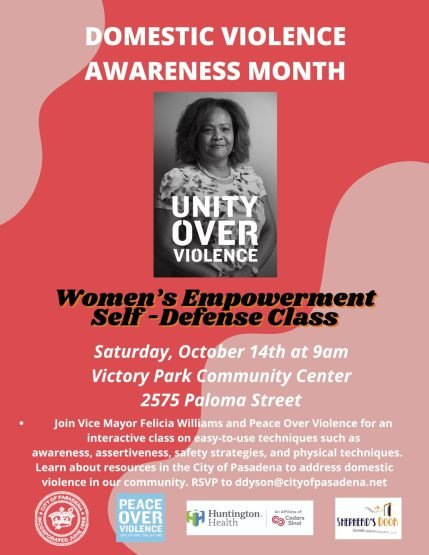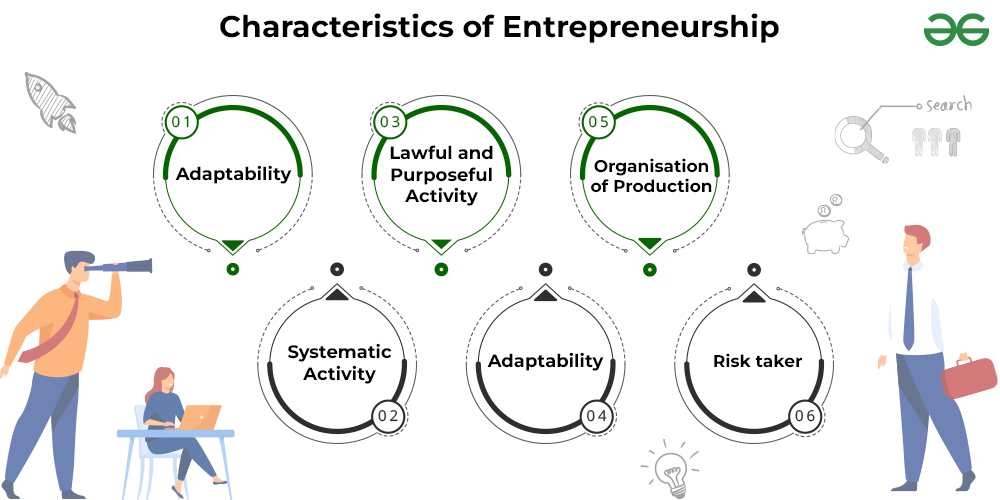Domestic violence and female empowerment are intertwined issues that significantly impact women’s lives and societal structures across the globe. In Rwanda, the evolution of the coffee industry has become a beacon of hope for women’s economic empowerment, providing women opportunities to enter the workforce and contribute to their family’s income. Research indicates that with increased financial independence, women are less susceptible to domestic abuse, facilitating a shift towards gender equality in Rwanda. Moreover, initiatives aimed at domestic abuse prevention are increasingly crucial in this context, encouraging female workers to take charge of their destinies. As these women thrive economically, they also inspire a cultural transformation that challenges the persistence of domestic violence, empowering future generations to envision a life free from abuse.
Exploring the realm of interpersonal violence against women reveals a profound connection with their economic strength and independence. The landscape of gender-based violence intersects with the rise of female agency in various industries, particularly highlighted in the thriving coffee sector of Rwanda. As women step into roles traditionally reserved for men, their financial contributions carve a path toward autonomy and resilience. The role of community support in domestic violence prevention becomes increasingly prominent, as empowered women challenge historical norms and assert their rights. This multifaceted approach not only elevates the status of female workers but also reinforces the foundation for lasting cultural shifts toward equality.
The Impact of Women’s Economic Empowerment on Domestic Violence
Women’s economic empowerment is a crucial factor in addressing the pervasive issue of domestic violence. Research illustrates a strong correlation between women’s financial independence and reduced incidents of domestic abuse. In Rwanda, as women engage in the coffee industry, particularly in cooperative mills, they gain not just economic resources but also increased bargaining power within their households. This empowerment enables them to make decisions that could enhance their safety and well-being. For instance, women who earn a wage are not only less likely to experience violence but also assert more influence in household decisions, challenging traditional gender roles ingrained in Rwandan society.
Sanin’s research indicates that female workers, particularly in newly established coffee mills, experience a notable decrease in domestic violence cases during the harvest season. This shift is attributed to the husband’s economic reliance on his wife’s productivity, as her income directly impacts the family’s financial status. Moreover, with the legal backdrop of Rwanda’s domestic violence law, women have the option to leave abusive relationships, reinforcing the notion that when women are empowered economically, they may pose a perceived threat to their partners, prompting men to reconsider aggressive behaviors.
Rwanda’s Coffee Industry: A Catalyst for Gender Equality
The Rwandan coffee industry has become a beacon of hope for gender equality in the region. The expansion of cooperative mills where women work has created opportunities for female empowerment, simultaneously transforming traditional norms related to women’s roles in agriculture. This shift is increasingly recognized through studies that highlight the positive socio-economic impacts on female workers engaged in coffee production. The focus on quality over quantity has not only elevated Rwanda’s stature in the global coffee market but has also opened doors for women to participate actively in the economy.
Through the lens of economic engagement, women are redefining their places within their communities and families. The coffee industry serves as a platform for these changes, demonstrating how women’s involvement can lead to broader societal shifts—specifically, moving towards greater gender equality in Rwanda. Access to financial resources allows women to support their families independently and invest in their futures. This growing financial autonomy is slowly dismantling the cycles of poverty and domestic abuse that have plagued many communities.
The Role of Cooperative Mills in Female Employment
Cooperative mills have proven to be instrumental in increasing female employment in Rwanda’s coffee sector. By providing organized labor opportunities, these mills enable women to transition from unpaid agricultural work to paid positions, significantly improving their socio-economic status. Women are engaging in tasks previously deemed suitable only for men, reshaping traditional gender norms in the process. This newfound economic status not only enhances their financial literacy but empowers them to participate more actively in their households and communities.
Research indicates that as more women work in the mills, their ability to influence household decisions improves. Women’s income shifts the power dynamics, allowing them to negotiate better terms and express their needs without fear of repercussions. Economic independence correlates with reduced marital violence, highlighting the importance of supportive employment environments. Thus, cooperative mills not only contribute to individual financial growth but also to the empowerment of women across Rwanda.
The Link Between Income and Domestic Abuse Prevention
Understanding the link between income and domestic violence prevention is critical in developing effective interventions. The findings from Sanin’s study emphasize that higher earnings can reduce domestic violence, but this relationship is complex. In scenarios where women earn significantly more money, there can be initial spikes in domestic conflict. This reaction is often related to shifts in power dynamics as male partners may perceive threats to their authority within the relationship. However, over time, increased economic independence can provide women with options to escape abusive situations.
In the context of Rwanda’s coffee mills, working women experience a dual advantage: they earn income and also shift the economic leverage within their relationships. This empowerment reduces traditional forms of male dominance and supports women in asserting their rights. By linking domestic abuse prevention efforts with economic empowerment programs, stakeholders can craft more informed policies that foster environments where women not only feel safe but can thrive.
Challenges and Opportunities for Female Workers in Rwanda
While Rwanda’s coffee industry offers numerous opportunities for female workers, it also presents challenges that need to be addressed. Many women still navigate systemic barriers such as limited access to education and resources, which can impede their ability to fully capitalize on the benefits of their employment. Additionally, despite participating in the formal economy, women often face discrimination and harassment in the workplace, which can dissuade them from seeking leadership positions or further opportunities for advancement.
Nevertheless, initiatives aimed at bolstering women’s economic empowerment are gaining traction. Programs that educate women on their rights and provide training in financial literacy, negotiation skills, and leadership are essential. Creating supportive networks within and outside the coffee industry can also help women build confidence and resilience, ultimately empowering them to overcome the societal challenges they face.
Integrating Gender Equality into Economic Policy
Integrating gender equality into economic policy is crucial for sustainable development in Rwanda. Policymakers must recognize that women’s economic empowerment contributes to national progress and addresses issues like domestic violence. By ensuring that women benefit equally from economic initiatives, such as those in the coffee sector, Rwanda can create a more equitable economy. This can be achieved through targeted investments in women’s training programs, access to resources, and protective legislation against domestic abuse.
Fostering an inclusive economic environment requires collaboration across various sectors, including agriculture, education, and health. It is vital to implement policies that promote female entrepreneurship and access to financial services. By prioritizing gender equality in economic planning, Rwanda can harness the full potential of its workforce, leading to better outcomes for women and society as a whole.
The Importance of Support Networks for Women
Support networks play a pivotal role in enhancing women’s economic empowerment and preventing domestic violence. Women working in Rwanda’s coffee industry often benefit from connections established through cooperative mills, providing them with mentorship, resources, and a sense of community. These networks can be a powerful tool for sharing information regarding legal rights, economic opportunities, and support services that can aid in situations of domestic abuse.
Moreover, establishing robust support systems can help women navigate challenges in the workforce. Whether through peer support groups or partnerships with local NGOs, these networks can empower women to advocate for themselves and challenge societal norms that perpetuate abuse. Building a culture of support can significantly fortify women’s resilience and determination, leading to lasting change in their lives and communities.
Future Directions for Research on Economic Empowerment and Domestic Violence
Future research on women’s economic empowerment and domestic violence is essential to understand the multifaceted interactions that influence women’s lives. Studies should continue to explore how various forms of female employment, particularly in sectors like agriculture, impact domestic violence rates. Additionally, research could examine how cultural shifts related to gender roles affect women’s experiences in the workplace and at home, providing context for understanding developments in both spheres.
Exploratory studies should also assess the effectiveness of different policy measures in improving women’s economic conditions and reducing violence against them. By identifying best practices and successful interventions, researchers can inform policymakers and advocates, ensuring that women’s empowerment remains at the forefront of economic discussions in Rwanda and beyond.
Conclusions: Economic Empowerment as a Vehicle for Change
In conclusion, the interplay between economic empowerment and domestic violence prevention presents a unique vehicle for change in Rwanda. The findings from the coffee industry highlight how women’s employment can significantly decrease rates of domestic abuse by altering power dynamics and providing financial stability. As women gain resources and agency, they can transform their roles within the family and society, promoting overall gender equality.
Moving forward, it is imperative for governments and organizations to support initiatives that empower women economically and foster safe work environments free from discrimination and violence. By prioritizing women’s participation in sectors like agriculture, not only can economic growth be stimulated, but transformative social change can occur, ultimately leading to healthier, more equitable communities.
Frequently Asked Questions
How does women’s economic empowerment in the Rwandan coffee industry contribute to domestic violence prevention?
Women’s economic empowerment in Rwanda’s coffee industry has shown a direct correlation with reduced domestic violence. Studies indicate that when women earn wages through coffee production, they gain increased bargaining power in their households. This economic independence decreases the likelihood of domestic abuse, as husbands are less inclined to exert control over financially empowered wives.
What impact does female empowerment have on gender equality in Rwanda?
Female empowerment has a profound impact on gender equality in Rwanda, especially within the context of the coffee industry. By engaging more women as paid workers in coffee cooperatives, the country has witnessed improvements in women’s financial status, which contributes to greater gender equality. Empowered women are more likely to engage in household decision-making, thus challenging traditional gender roles.
What role do cooperative mills play in preventing domestic abuse among female workers in Rwanda?
Cooperative mills in Rwanda serve a crucial role in preventing domestic abuse among female workers. By providing women with paid employment during harvest seasons, these mills enable women to gain financial independence. This financial empowerment reduces domestic violence incidents, as husbands become aware of the economic consequences of their abusive behavior towards empowered wives.
How does financial independence from the coffee industry affect women’s bargaining power in Rwandan households?
Financial independence from the coffee industry significantly enhances women’s bargaining power in Rwandan households. When women earn their own income, they can make independent financial decisions and negotiate for better treatment in their marriages, which ultimately leads to a decrease in domestic violence.
Why is financial empowerment essential for reducing domestic violence in Rwanda?
Financial empowerment is essential for reducing domestic violence in Rwanda as it offers women stability and independence. Studies show that when women are financially self-sufficient, their risk of domestic abuse decreases. This empowerment allows women to leave abusive situations and play a more active role in household decision-making, thereby fostering a more equitable home environment.
What evidence exists linking domestic violence rates to women’s employment in Rwanda’s specialty coffee sector?
Research conducted on Rwanda’s specialty coffee sector provides compelling evidence linking women’s employment to lower domestic violence rates. Women working in coffee cooperatives reported significantly fewer incidents of domestic violence compared to those in regions without similar employment opportunities, showcasing the positive effects of women’s economic empowerment on family dynamics.
How do cultural factors influence the relationship between female empowerment and domestic violence prevention in Rwanda?
Cultural factors significantly influence the relationship between female empowerment and domestic violence prevention in Rwanda. The success of women’s economic participation in the coffee industry hinges on supportive social norms that accept divorce and promote gender equality. In communities where these progressive cultural shifts occur, the positive impacts of female empowerment on domestic violence reduction are more pronounced.
What initiatives can enhance women’s economic empowerment to prevent domestic violence in developing countries like Rwanda?
Initiatives to enhance women’s economic empowerment in developing countries like Rwanda include promoting access to education and vocational training, supporting microfinance programs, and establishing support networks for female entrepreneurs. By fostering an environment where women can gain financial independence, communities can effectively reduce domestic violence and promote overall gender equality.
| Key Points |
|---|
| Deniz Sanin’s study highlights the correlation between women’s financial empowerment and a decrease in domestic violence, particularly in Rwanda’s coffee industry. |
| The increase in seasonal employment opportunities for women at cooperative mills has led to a significant decrease in reports of domestic violence during the harvest months. |
| Sanin found that women earning wages increases their bargaining power and encourages joint decision-making in households. |
| This research indicates that women’s financial independence can serve as a protective factor against domestic violence. |
| The effectiveness of women’s employment in reducing domestic violence is contingent on factors such as the social acceptance of divorce and economic dependency. |
Summary
Domestic violence and female empowerment are intricately linked, as demonstrated by recent research exploring the dynamics of women’s employment in Rwanda’s coffee industry. Economic independence for women not only provides financial stability but also plays a crucial role in reducing domestic abuse. By empowering women through consistent wage-earning opportunities, communities can foster environments where women can assert their rights, make joint decisions with their partners, and ultimately experience a decline in domestic violence. This connection underscores the importance of policies that support women’s employment as a strategic method to combat domestic violence.



